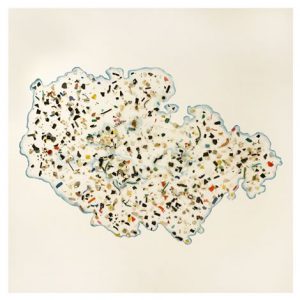How to be a Successful Artist
Exhibiting Introduction: The First Leap Of Faith
Taking the leap into exhibiting your first body of work can be either daunting and/or a natural progression from being in the studio. It all depends on you.
Exhibiting can be seen as solely a part of the creative process, in that if you can deal in a positive way with the commercial reality of selling your art, by having a gallery do it for you or by doing it yourself, where you can be proactive with gallery directors and staff or the general public and collectors, then you will be a natural.
The development of an artist’s identity
I am intrigued by how insistent I have been over the years to maintain my identity as an artist. I am fortunate not that I stumbled across found and recycled objects and saw their artistic potential – but that I had the courage to envision an entirely new art form and risk ridicule, and my reputation as a fine artist, to create this new body of work.
Artists have an extra sensitivity towards life that is vital to their well being as an artist
There is no doubt that artists have an extra sensitivity towards life. In fact, it is a necessary component of the artist’s quality that enables him or her to respond creatively to life’s experiences. What initiates or develops this sensitivity is, of course, an individual thing. In my case, I believe my sensitivity, as an artist was a by-product of my biological father’s suicide when I was a toddler. This tragedy, and its impact on my mother and siblings, has fuelled this ‘extra sensitivity’ to life.
Art Revelations #3: Personal Transformation And Resolution
To prompt yourself into action you need to have a strong enough intent. You need to make sure that your effort is mutually nourishing and is essentially beneficial to others. You need to know that you’re capable of putting in constant effort and preferably have this effort be inspired over a long period, and then you will see the results of your effort.
Taking Risks
Artists are not taught to consider these things either at most art schools and universities, and more often than not they are not taught these skills by their parents, either by having dysfunctional childhoods in the first place which may be one of the main reasons why they became artists, or because they rebelled against their parents and any positive business sense teachings their parents were offering.
Resources
Across Europe there are artist resources in each country, probably such an exhaustive number exist in each country and each major city, that it is pointless to list them all here. Look them up on a need to know basis when you are there and reap the benefits of the insider knowledge you gain and the networking opportunities found. They are priceless.
Central Artistic Concerns #1
I find it incredulous to think how many times I have bent over to pick up the many thousands of pieces of plastic debris that made up that aspect of my art, each piece jostled around for an unknown duration by sand, sun and ocean, their form altered, faded and rounded by the elements.
Art Experiences And Insights #4
Exposure to international art in London and Europe, in the early eighties, encouraged me to pursue my career as a full time artist. One defining moment was experienced at the Tate Gallery in London, nineteen eighty-one. In a gallery space devoted to Mark Rothko, the American abstract expressionist, I experienced the depth of and commitment in his work.
Reflections On Obstacles #1
At the same time, these occurrences can open doors for a new process of working. When you’re having an exhibition of new work and it doesn’t sell – that can be difficult. Again, I would have to talk about relativity. It’s tough if you don’t sell work at an exhibition, especially if you put a lot of time and money into the show. But that pales in significance when compared to being dealt a bad hand when you least expect it.
Breathing
If you feel like your artist statement or your web copy is not ever done – it isn’t. Writing is a process and very rarely a product. Text can always be reworked and improved. Set goals, but be reasonable. Be fair to yourself and ask for help along the way.

